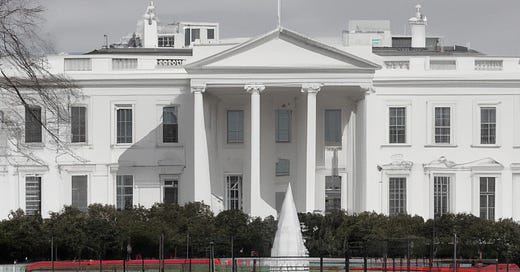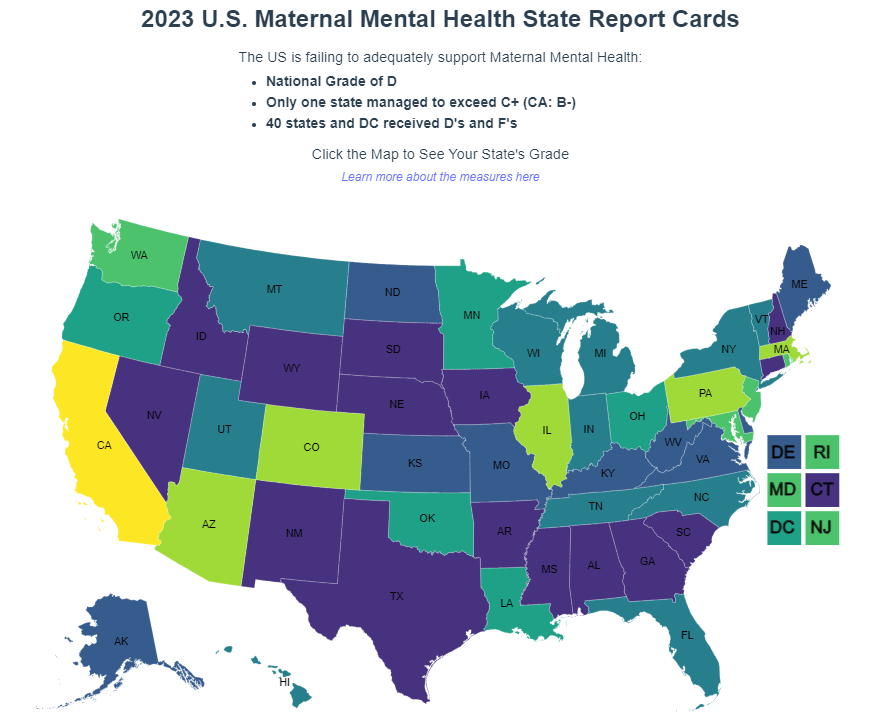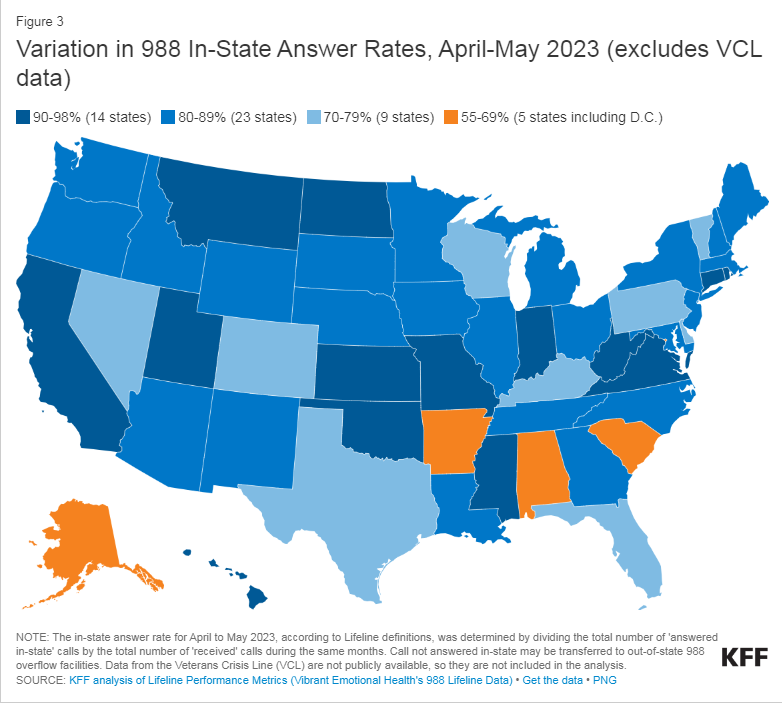🤝Biden Administration Pushes Insurers to Improve Mental Health Access
Your 07/30/23 update on all things social work
Good morning! ☀️
And Happy Sunday!
In case you missed it, The Social Work Newsletter is now The Mental Health Digest.
Question: In 2021, what percent of Americans did not have health insurance?
News
The Mental Health Parity and Addiction Equity Act (MHPAEA), passed in 2008, called for mental health care benefits covered by health plans to be provided at the same level as physical health care benefits. Yet many people in the United States continue to have difficulties with finding and affording mental health care. For example, some research has shown that “of the 21% of adults who had any mental illness in 2020, less than half received mental health care.” This number is halved to 10% for those with a substance use disorder.
One of the reasons for this gap is the obstacles insurers create for those seeking care. Because of these obstacles, people are forced to seek more expensive out-of-network care or to forego treatment altogether. In response, this week, president Biden announced new rules to strengthen care. These proposed changes include:
Requiring health plans to track the outcomes of their coverage to make sure that there is equivalent access between mental health and medical benefits
Outlining what insurers can and cannot do. For example, they cannot use more restrictive prior authorization or restricted networks to make care harder to access
Closing loopholes which will require more than 200 health plans who are not currently compliant with MHPAEA to be compliant with the law
Other social work-related news
In every state, people who are a threat to themselves or others can be ordered to receive treatment. Yet Mississippi appears to be the only state where people are routinely jailed without charges for days or weeks during this process. Since 2006, at least 13 people have died in Mississippi county jails while they waited for this treatment
The “first-ever comprehensive view” into maternal mental health in America showed that “the U.S. is failing mothers”. The U.S. received a “D” rating on it’s maternal mental health score card.
Bridget Narsh’s son, a teen with autism, ADHD, and PTSD, had stared destroying furniture and running away, but the family couldn’t afford the $1,338 a day psychiatric bed at their local hospital. Although a representative offered a discounted rate of less than $60 a day and her son was hospitalized for more than 100 days, the bill came out to over $100,000, over 15 times the expected amount
A Kaiser Family Foundation report found that 5 states had “in-state answer rates” of between 55% and 69% when people called the 988 suicide and crises hotline. The in-state answer rate measures the percentage of calls answered within that state’s borders. This means that D.C., Alaska, Arkansas, Alabama, and South Carolina failed to answer 25% to 50% of all of the calls that they received.
Reads on research
A Spanish research study on superagers, or people ages 80+ with the memory function of people decades younger than them, showed that these superagers had more gray matter in their brain relative to others their age. They also had better general mental health and mobility. Scientists don’t know exactly why superagers outperform their peers, but it could be due to their genetics
According to the Census Bureau, the estimated revenue of independent mental health clinicians increased 104.0% from $7.9 billion in 2015 to $16.2 billion in 2021. This increase in revenue may be a result of factors such as need due to COVID-19 and the Opioid Crisis and the expansion of telehealth
Nationally, contacts to the 988 Suicide & Crisis Lifeline, which encompasses calls, texts and messages through the network’s chat line that are routed to a crisis center or counselor, were up 38% from 277,407 in June 2022 to 382,650 in June 2023
Reads on policy
U.S. Sen. Alex Padilla (D-Calif.) introduced The Mental Health for Latinos Act, a bill which seeks to lift barriers to mental health care among Latinos by reducing stigma and “encouraging people to reach out for help”
Nearly a third of transgender students ages 13-17 now live in states that ban them from playing on sports teams aligning with their gender identities
Massachusetts lawmakers are hearing testimonies from people as they consider implementing laws that will allow children and young adults in the state who are without a legal immigration status to access healthcare
Tech, mental health, and resources 😎
UpLift, a technology-driven behavioral health company, raised an $11M Series A round. The company “partners with leading national and regional health insurance plans to deliver high-quality, virtual-first psychotherapy and psychiatry”
UK's thymia raised $2.7 million to expand its AI approach to diagnosing mental health struggles through gamification. The company uses video games design embedded in neuropsychology, linguistics, and machine learning to detect signs of mental illness
Answer: In 2021, 8.3 percent of people, or 27.2 million, did not have health insurance at any point during the year
If you enjoyed this newsletter, consider sharing it with a friend or colleague. You can directly forward the newsletter, or use the button below to get rewards for referrals. The goal is to be able to hire support staff to run and sustain the newsletter. Thank you for your support 🙏






More state legislatures need to seriously consider enacting the allowed cell phone bill fee to create dedicate crisis services funding streams at state levels. The federal 988 Implementation Act (round 2) is a good step, but ultimately the success of 988 will come down to whether states embrace the need to build out more prevention services, community-based supports, and 2+ person mental health crisis teams. The federal government can only lead the horse so far...